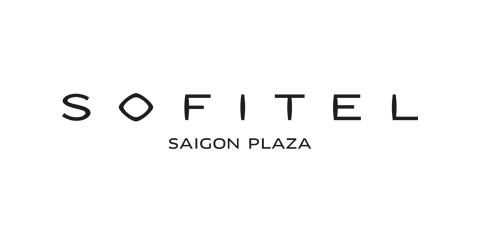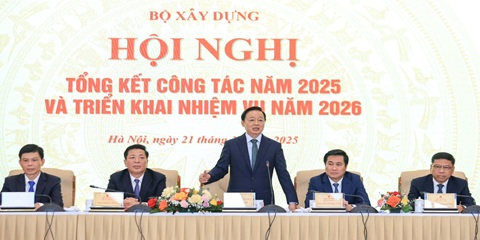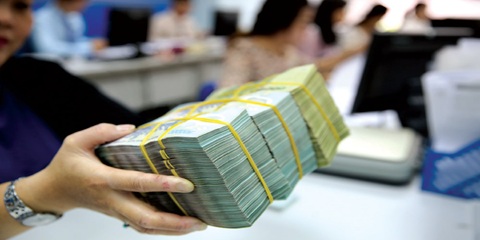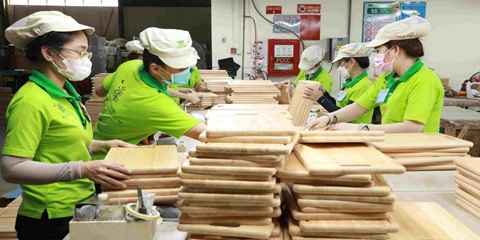Want to be in the loop?
subscribe to
our notification
Business News
LEGAL WRANGLING OVER FOL REIGNITED
Despite the changes to the Law on Housing and foreign ownership caps five years ago, real estate developers now show an increasing demand to revise regulations and increase the cap even more, to up to 50 per cent. However, revisions will be tough to put into practice, even if the suggestion is recognised by the government.
According to Kevin Hawkins, co-executive partner from Zico Law, it will not be easy to revise the regulation swiftly because amending the current cap means amending the law.
“The 30 per cent quota is regulated under the Law on Housing and only the National Assembly (NA) has the authority to amend it. The NA only convenes twice a year, with the next time in October, and the proposal is not on its agenda this year,” Hawkins explained.
Moreover, he added, before a draft law is amended, other authorities, organisations, and the public must first have an opportunity to comment. Even after the Law on Housing is amended, the government and relevant ministries will need time to amend respective guiding regulations. For example, changing the 30 per cent quota for residential apartments should also impact the 10 per cent quota for foreigners to own detached houses because these were determined connectively.
Second, the government imposes a cap of 30 per cent for non-nationals based on the direction to avoid overseas speculation, which can make the market worse, and also to stave off money laundering.
“The first target of the policy to permit foreigners to buy homes in Vietnam was to help those living here for a long time. The cap is not to create more opportunity for developers to reduce inventory products in mid- and high-end projects,” said Dang Hung Vo, former Deputy Minister of Natural Resources and the Environment.
Furthermore, foreigners can buy homes in projects which were granted permission to sell for them, to ensure the security of the nation. That means they cannot buy homes in projects which are located in sensitive areas where they are forbidden.
Talking with VIR, Michael Piro, COO of Indochina Capital said that Vietnam’s current foreign quota of 30 per cent is comparably lower than the foreign quota in neighbouring countries such as Thailand (49 per cent), while Malaysia and Indonesia do not have a foreign ownership limit (FOL) in place at all.
“Vietnam is one of the fastest growing-economies in the world but local real estate prices remain competitive and rental yields are among the highest in Southeast Asia. The average rental yield for Ho Chi Minh City is about 6.5 per cent while the rental yield in Bangkok stands at around 4 per cent,” he explained.
“The high-end residential segment has been one of the best performing real estate markets in Vietnam, and we believe the market still has room to grow. Thus, expanding the foreign quota to 50 per cent would open up significant opportunities for developers, especially those who are targeting the high-end and luxury segments,” he added.
For many projects nationwide, the 30 per cent FOL is quickly maxed out and developers have been able to take advantage of this high demand from overseas investors to increase prices. For some good projects, after the allocation is sold out, these buyers are even willing to invest under long-term-lease agreements.
Hawkins from Zico Law said that the recommendation to increase the overseas residential ownership cap from 30 to 50 per cent is reasonable for the market and for the further development of Vietnam generally.
“The current cap was justified as an entry-level protection, but now that the market has developed significantly, such cap is no longer warranted. Foreigners typically seek out premium residential properties and this does not adversely impact the availability of housing for Vietnamese citizens nor should increasing the cap generate any additional security concerns,” he said. “A higher quota is reasonable to help developers recover post-pandemic and align with regional markets.”
Caleb Lau, general manager of Hong Kong Land in Vietnam told VIR that even though many buyers of Vietnamese properties come from Asian countries, American, British, Canadian, and various European nationalities also play very important roles in terms of market demand.
“If the foreign buyer cap increases it will attract more investment into Vietnam since it helps make the market more lucrative with customers willing to pay a premium for products of good quality,” said Lau. “Increasing the buyer cap in a project from 30 to 50 per cent of the total unit number will help developers broaden their potential customer base and diversify target markets worldwide and therefore, reduce the dependence on one market to sustain their business.”
Piro from Indochina Capital said that the amendments to the Law on Housing allowing non-nationals to buy property in Vietnam have greatly boosted the country’s residential real estate market. “It has contributed to the country’s evolution into one of the most exciting real estate markets in the region and helped develop the local real estate market, with many domestic players now contributing significantly to the industry.”
More specifically, he added, it has helped the high-end property segment in Vietnam grow at a faster pace, especially in major cities such as Hanoi and Ho Chi Minh City.
Piro analysed that with various new free trade agreements being ratified and the potential of global manufacturers relocating to Vietnam due to COVID-19, the number of foreigners living and working in the country should increase. “The influx of these workers could create more demand for local residential products. With the high rental yields achieved in Vietnam, investing in high quality condominiums remain an attractive investment for those with disposable income,” he said.
Easing existing FOLs moreover could also help reduce unsold inventory in premium projects in major cities.
“If the FOL for residential products is increased, coupled with efforts to ease restrictions on foreign holding of public companies, Vietnam’s economic landscape will change significantly and a surge in overseas investment in Vietnam can be expected,” said Piro.
Source: VIR
Related News

A STELLAR CHRISTMAS AT SOFITEL SAIGON PLAZA
Experience the magic of year-end celebrations in five-star luxury, where Parisian elegance meets Saigon’s festive vibrancy. Discover your Stellar Christmas moments: https://sofitel-saigon-plaza.com/festive-offer-2025

CONSTRUCTION SECTOR POSTS OVER 9% GROWTH IN 2025
Industries under the ministry’s management accounted for an estimated 17.23% of national gross domestic product (GDP), up about 0.17 percentage point from 2024. They contributed around 1.96 percentage points to overall GDP growth, reported the Vietnam News Agency. The contribution helped push Vietnam’s economic growth to above 8% in 2025 and supports the Government’s aim of pursuing double-digit growth in the coming years.

VIETNAM PUTS PUBLIC INVESTMENT DISBURSEMENTS AT VND603.6 TRILLION
Vietnam’s public investment disbursements had amounted to VND603.6 trillion in the year to December 18, equivalent to 66.1% of the plan assigned by the prime minister. According to the Ministry of Finance, actual disbursements by December 11 had totaled VND577.7 trillion, or 63.3% of the prime minister-approved plan of VND913.2 trillion, the Vietnam News Agency reported.

SHINE INTO 2026 AT HOIANA RESORT & GOLF!
This New Year’s Eve, celebrate where the sea meets the sky. Vibrant performances, festive dining, DJ beats, live bands and dazzling fireworks come together for one unforgettable night. From beachfront countdown moments to curated New Year’s Eve dinners across Hoiana, every detail is designed to welcome 2026 in style.

VIETNAM’S TRADE SET TO SURPASS US$900 BILLION FOR FIRST TIME
Vietnam’s total import-export turnover is expected to reach about US$920 billion by the end of the year, marking the first time the country’s trade value has exceeded the US$900-billion mark. As of December 15, Vietnam’s total trade turnover stood at US$883.7 billion, according to the Agency of Foreign Trade under the Ministry of Industry and Trade.

GLOBAL SOURCING FAIR VIETNAM 2026 – THE TRULY GLOBAL B2B SOURCING SHOW IN VIETNAM TO EXPAND & DIVERSIFY YOUR EXPORT MARKETS WORLDWIDE
The 4th edition of Global Sourcing Fair Vietnam returns in 2026 with an impressive scale, featuring 700 booths showcasing Fashion & Accessories, Home & Gifts, and the newly introduced Printing & Packaging Products from 500+ verified suppliers across Vietnam and Asia – including Mainland China, Taiwan, Hong Kong SAR, South Korea, India, Bangladesh, ASEAN, and more.
























